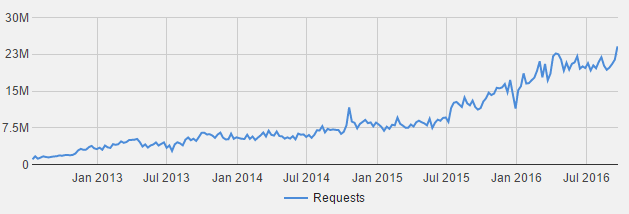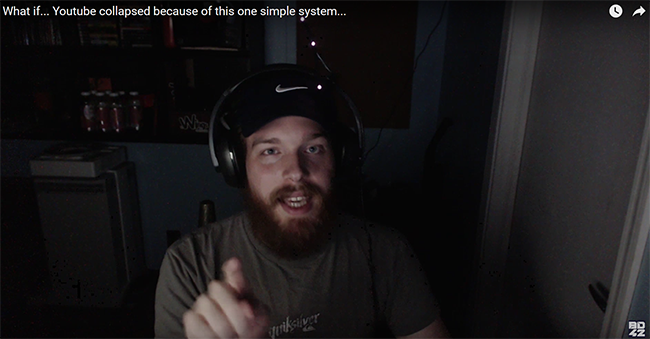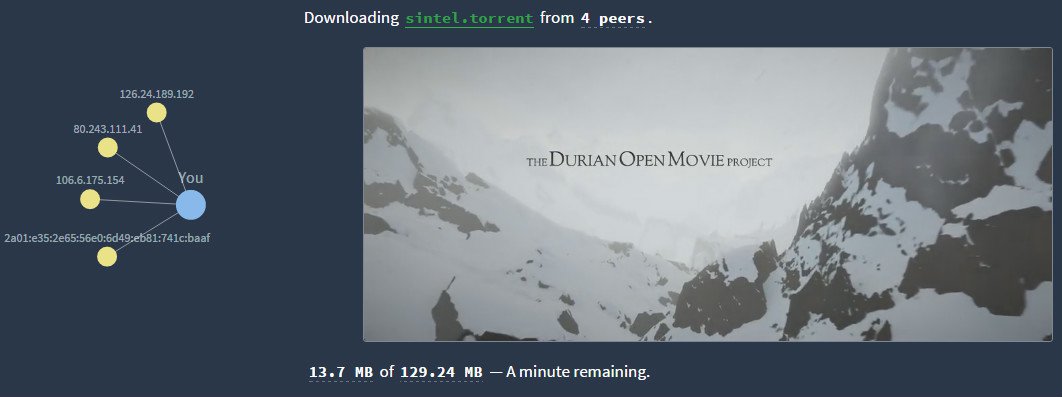Google Piracy Takedown Requests Double in a Year, Set New Record
dimanche 2 octobre 2016 à 05:53 In recent years copyright holders have bombarded Google with DMCA takedown notices, targeting links to pirated content.
In recent years copyright holders have bombarded Google with DMCA takedown notices, targeting links to pirated content.
These requests have increased dramatically over the years, breaking record after record.
Five years ago the search engine received ‘only’ ten million takedown notices during the entire year, but today it processes the same amount in less than three days.
Data gathered by TorrentFreak from Google’s Transparency Report reveals a new weekly record of 24,119,797 reported pirate links, which is more than twice the number received by Google last year.
The graph below nicely illustrates the continued increase, showing the number of weekly requests over the most recent years.
At the current rate, Google will process more than a billion links in 2016, which would be a hundredfold increase in just five years, with no slowdown in sight.

Considering our frequent reporting about various takedown related mistakes, it’s worth looking at how many of these reported links actually disappear from search results.
New data made public earlier this month showed that the majority of the links, 91 percent, are ultimately removed. Two percent of the reported URLs are rejected, with the remainder being duplicate or incomplete links.
While rightsholders have increased their takedown efforts over the years, the major entertainment industry groups are not happy with the current state of Google’s takedown process at all.
One of the main complaints has been that content which Google de-lists often reappears under new URLs.
“Every day we have to send new notices to take down the very same links to illegal content we took down the day before. It’s like ‘Groundhog Day’ for takedowns,” RIAA CEO Cary Sherman said previously.
To counter this, rightsholders would like Google to ensure that content “stays down” while blocking the most notorious pirate sites from search results entirely.
Google, however, believes that this will lead to all sorts of problems and maintains that the current system is working as the DMCA was intended.
The search engine did implement various other initiatives to counter piracy, including the downranking of pirate sites and promoting legal options in search results, which it recently detailed in its updated “How Google Fights Piracy” report.
For now the impasse continues and whether it will ever be broken is highly doubtful.
Source: TF, for the latest info on copyright, file-sharing, torrent sites and ANONYMOUS VPN services.
 A couple of weeks ago, the IFPI announced that the problem of stream-ripping has become so serious that in volume terms it has overtaken downloading from ‘pirate’ sites. For what is essentially a YouTube-powered phenomenon, that was quite a claim.
A couple of weeks ago, the IFPI announced that the problem of stream-ripping has become so serious that in volume terms it has overtaken downloading from ‘pirate’ sites. For what is essentially a YouTube-powered phenomenon, that was quite a claim. Online streaming continues to gain in popularity, both from authorized and pirate sources.
Online streaming continues to gain in popularity, both from authorized and pirate sources.


 Earlier this year Paramount Pictures and CBS Studios filed a lawsuit against the makers of a Star Trek inspired fan film,
Earlier this year Paramount Pictures and CBS Studios filed a lawsuit against the makers of a Star Trek inspired fan film, 